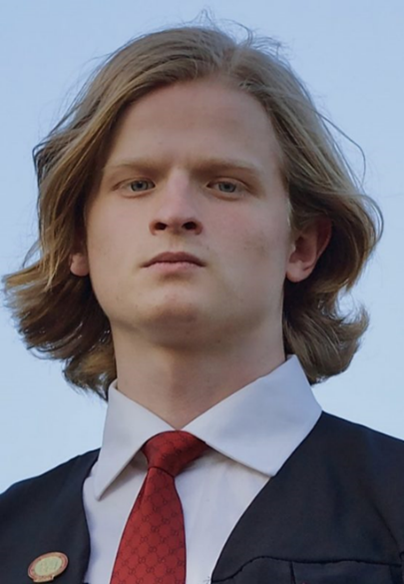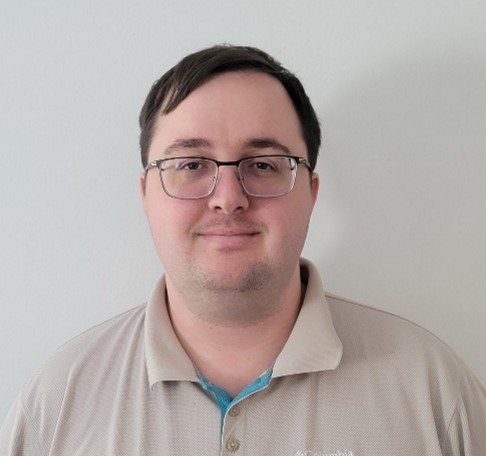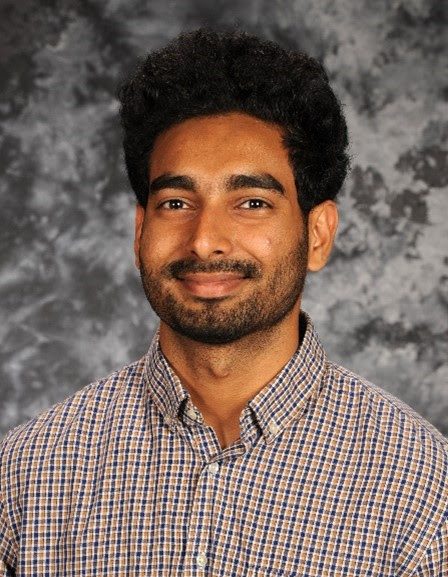MSTD VIRTUAL SEMINAR SERIES
The seminar series provides graduate students with an opportunity to present their latest and greatest research in a professional online setting to their peers.?Seminars will be held on the last Tuesday of the month from 2-3 pm EST. Each talk will be scheduled for 30 minutes + 15 minutes Q&A. The seminars will be held in the months of January-May and August-October (8 total). Some topics of interest for the MSTD Virtual Seminar Series include, but are not limited to:
1. Fission reactor fuel performance and modeling
2. Power plant aging and life extension
3. Fusion reactor systems
4. Isotope production
5. Gamma irradiation
6. Interim spent fuel storage
7. Actinide disposition
8. Shielding
9. Others!
For graduate students who?d like to present for future seminars, please send an email to awbatall@ncsu.edu with the subject line ?MSTD-VSS: Presentation Request? and include an abstract and a brief bio (e.g., affiliation, research interests, headshot).
Note to Student Seminar Presenters:
MSTD will cover $200 of your registration fee for the upcoming ANS Winter or Annual Meeting?to our graduate MSTD members who provide seminar presentations.
Join MSTD Seminar (2PM – 3PM ET)
https://ncsu.zoom.us/j/98472618546?pwd=VXBXMFdVclAwVURoQ2R6OTZ5WVJPdz09
Passcode: 835498
One tap mobile
+14702509358,,98472618546#,,,,*835498# US (Atlanta)
+14703812552,,98472618546#,,,,*835498# US (Atlanta)
Next Seminar Starts In:
Day(s)
:
Hour(s)
:
Minute(s)
:
Second(s)
Upcoming seminar dates:
January 30th, 2024 from 2pm – 3pm ET
February 27th, 2024 from 2pm – 3pm ET
March 26th, 2024 from 2pm – 3pm ET
April 30th, 2024 from 2pm – 3pm ET(CANCELLED)
March 26th, 2024 Seminar Presenter

Lukas Metzger
Nuclear Engineering Program in Department of? Mechanical Engineering, Virginia Tech
Effects of Microstructural Variance on Edge Dislocation Mobility and Pinning in Nickel Superalloys at High Temperatures
Lukas Metzger1 and Stephen Taller2
Affiliation
1Virginia Tech, Nuclear Materials and Fuel Cycle Center
2Oak Ridge National Laboratory
Abstract
Nickel-based superalloys are precipitation hardened alloys considered for use in high-temperature applications due to their excellent mechanical properties as a result of their ??, ??, and ? phases. The interactions between the primary strengthening phase in superalloy 718, ?? precipitates, and stress-driven mobile edge dislocations were examined using molecular dynamics simulations. Each dislocation movement simulation cell consisted of an FCC Ni lattice, an edge dislocation, and a ?? precipitate up to 10 nm in diameter oriented either parallel, perpendicular, or orthogonal to the Burgers vector with a constant shear rate applied. Simulations results demonstrated the presence of a strain field surrounding the precipitate, its influence on dislocation movement, and a decrease in the peak shear stress to de-pin dislocations with increasing temperature up to 873K. Varying the orientation of the precipitate demonstrated drastic differences in dislocation bowing behavior and resulting obstacle strength coefficients that correlated qualitatively with tensile properties.
Biography
Lukas Metzger graduated with a B.S. in Materials Science and Engineering in 2022 from Virginia Tech. Since then, he has been pursuing a PhD in Nuclear Engineering at Virginia Tech under Dr. Jinsuo Zhang at the Nuclear Materials and Fuel Cycle Research Center. His research focuses on chemical and thermodynamic properties of liquid lead coolant used in next-generation lead-cooled fast reactors. Other research topics of interest include analyzing phase stability and precipitate-dislocation mechanisms in nickel-based superalloys using molecular dynamics.
Lukas Metzger
Graduate Research Assistant
Virginia Tech | Nuclear Materials and Fuel Cycle Center
1872 Pratt Dr., Suite 1200
Blacksburg VA 24060
(757) 771-8783
February 27th, 2024 Seminar Presenter

Grayson Nemets
Department of? Materials Engineering, Purdue University
Effect of Electron Beam Welding on RPV Steel Microstructural Evolution
G. Nemets, E. H. Marrero, J. Emerson, J. Herrema, Z. Shang, M. Okuniewski, and J. P. Wharry
Abstract
The objective this study is to assess the microstructural evolution of SA508 Gr. 3 steel, made via either powder metallurgy with hot isostatic pressing (PM-HIP) or forging, after electron beam (EB) welding and heat treatment. SA508 is commonly used for reactor pressure vessels (RPVs) due to its low cost and good radiation tolerance. Currently, the Nuclear Regulatory Commission forbids welds in RPV manufacturing, due to their susceptibility to radiation embrittlement. EB welding is thought to cause less microstructural instability than traditional welding methods, and is thus theorized to perform better under irradiation. Combining this technique with PM-HIP would significantly reduce lead time and cost for RPV manufacturing, which warrants investigation into the resulting microstructural evolution.
In this study, SA508 blocks were made either via PM-HIP or forging. These blocks were EB welded, then underwent one of two heat treatments: post-weld heat treatment (PWHT), or solution anneal-quench-normalization-tempering (SQNT). The two heat treatments yielded drastically different microstructures, with PWHT resulting in a martensitic weld line with some tempering, and SQNT resulting in a fully pearlitic microstructure. Finite element models predicted the temperature profiles after heat treatments, which showed that the martensitic weld line was more resistant to recrystallization than the pearlitic base metal, especially in the PM-HIP samples. The PM-HIP samples also exhibited residual porosity, showing both uniformly distributed submicron pores, and macro-scale pores concentrated in the heat-affected zone (HAZ). Pores and PM-HIP induced MnSi precipitates appear to influence the adjacent phase and grain structure in the weld and HAZ.
Biography
Grayson Nemets is a second-year Ph.D. student at Purdue University, and a member of Dr. Janelle Wharry?s research group in the Department of Materials Engineering. He obtained his B.S. in Mechanical Engineering from Rose-Hulman Institute of Technology in 2022. His research is focused on nano-scale microstructural effects of manufacturing processes in low-alloy steels. He has an upcoming review paper covering the effects of welding on radiation tolerance of RPV steels, and another upcoming paper detailing the effects of welding and heat treatment on PM-HIP induced MnSi precipitates in SA508 steel.
January 30th, 2024 Seminar Presenter

ATM Jahid Hasan
Department of? Nuclear Engineering, North Carolina State University
Xe gas bubble re-solution in U-Mo fuel: a molecular dynamics study
ATM Jahid Hasan (NCSU), Linu Malakkal (INL), Benjamin Beeler (NCSU), and Mathew Swisher (INL)
Abstract
A U-Mo alloy-based monolithic fuel design has been identified as the fuel type for conversion of the United States High-Performance Research Reactors (HPRRs). However, the U-Mo monolithic fuel exhibits excessive swelling during operation. To understand the fuel evolution under irradiation, mesoscale and engineering-level fuel performance models require the knowledge of the fundamental mechanistic behavior of fission products in the fuel. As such, understanding the progression of Xe gas bubbles in the fuel is crucial. The Xe gas bubbles act as a sink for individual Xe atoms (trapping of Xe) and subsequently grow in size after absorption. Under irradiation, the Xe atoms in the gas bubble are thrown back into the fuel matrix by fission product-induced thermal spikes (re-solution of Xe), and this process reduces the bubble size. The re-solution rate of Xe gas bubbles in U-Mo is currently unknown, and an estimated model based on UO2 is used in higher length-scale models for calculating fuel gas swelling. This talk will discuss a new molecular dynamics study of Xe gas bubble re-solution in U-Mo fuel that aims to replace the estimated model with a physics-based one.
Email address: ahasan3@ncsu.edu
Biography
ATM Jahid Hasan is a Ph.D. student in the Department of Nuclear Engineering at NC State University. He is working as a graduate research assistant in the computational nuclear materials science group led by Dr. Benjamin Beeler. His research focus is on atomistic simulations, machine learning, and mathematical modeling. He has also interned at Argonne National Laboratory and Idaho National Laboratory. He obtained his B.Sc. in nuclear engineering from the University of Dhaka.
